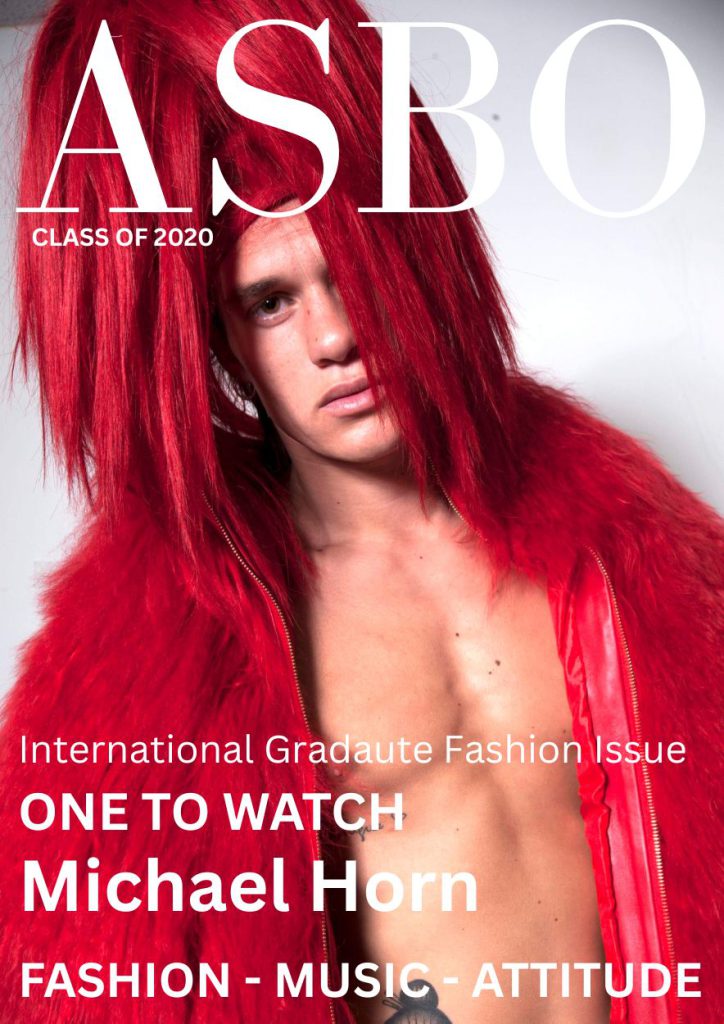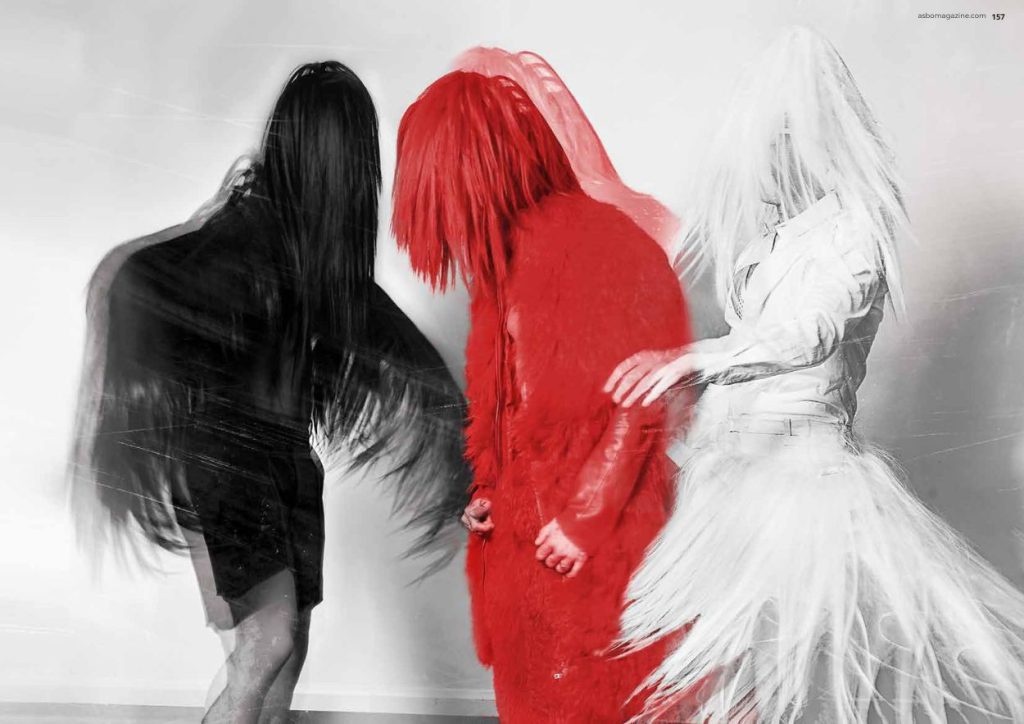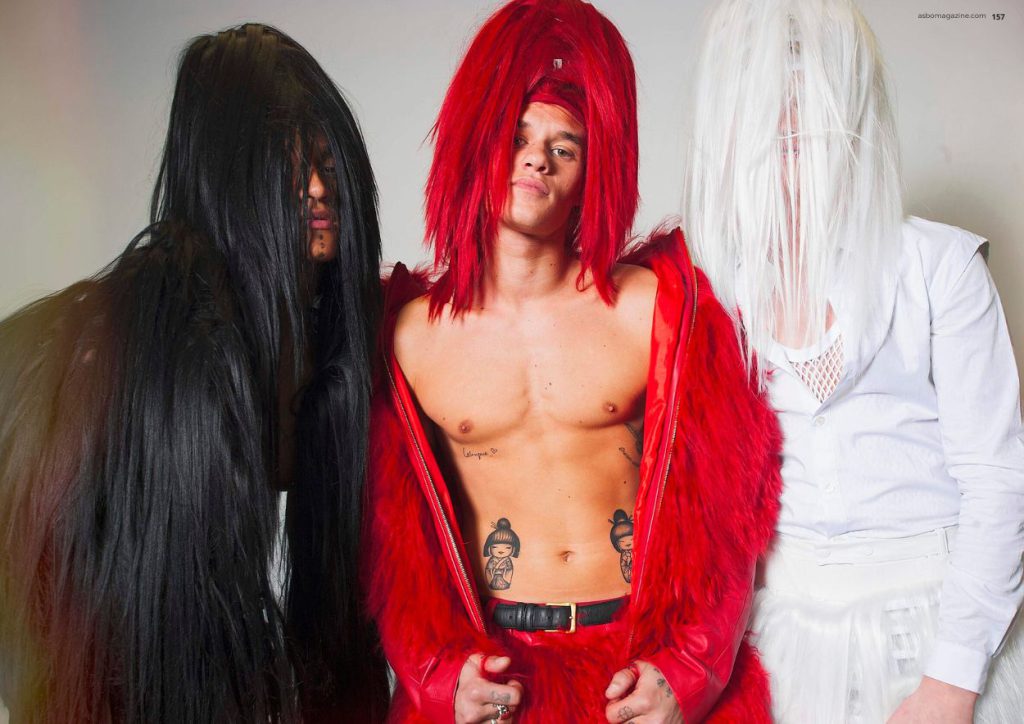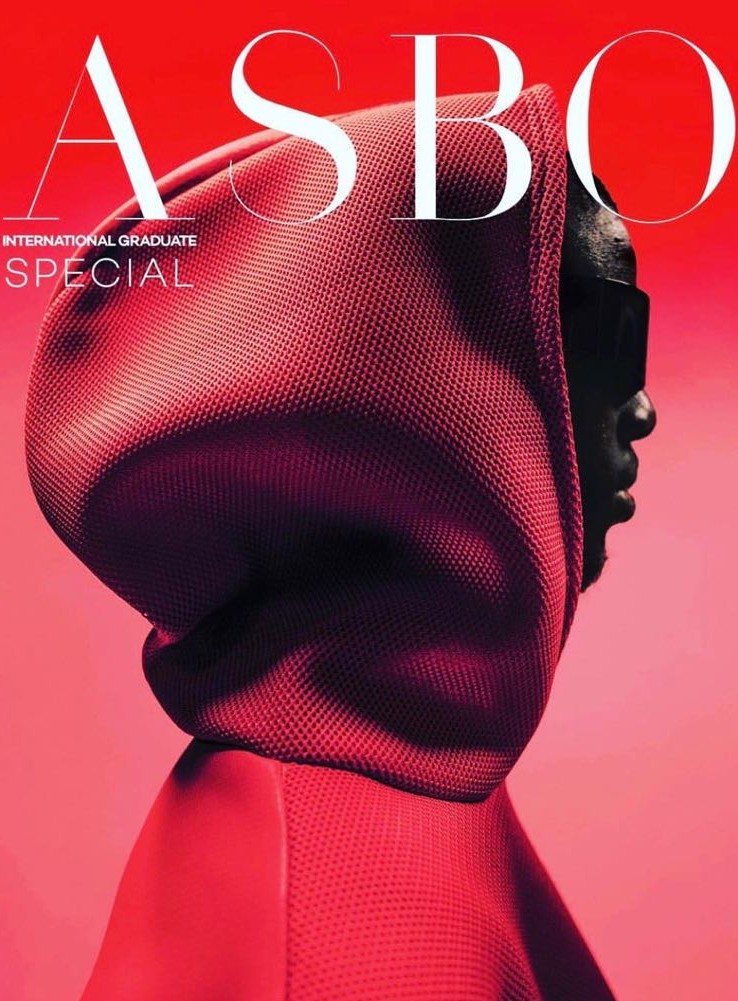“FASHION CAN BE A FANTASTIC INDUSTRY, INSPIRATIONAL,CREATIVE. BUT IT IS A TOUGH INDUSTRY TO MAKE A LIVING IN. I THINK IT IS VERY IMPORTANT TO BE FLEXIBLE”
I: Vanya Sacha. W: S: Pigeon John W: Lithemba Velleman
On a typically grey afternoon in London, ASBO Magazine Fashion Features Editor and menswear designer, Michael Hone, strolled through Shoreditch and grabbed a coffee, chatting about all things graduate fashion. He speaks as someone who has just completed that process, from how he fared after completing his MA in Menswear Fashion Design at London College of Fashion, getting his first paying job as a designer for Caroline Charles, to where he sees himself in the future. He discussed how to balance commerciality and creativity, and the inspiration behind his latest graduate collection.

ASBO: Go on then, what are all the furry pieces in your collection about?
Michael Hone: The name of the collection is the Adonis Complex, which is a colloquial term for muscle dysmorphic disorder - looking in the mirror and thinking that you are skinny, when you are buff. It’s this obsession with getting bigger and being more masculine, and then you start taking steroids and become this unnatural form of what a man is, hence all the overwhelming hair and the distorted proportions.
ASBO: It’s just odd, because from a physical attraction perspective…
Michael Hone: Nobody finds this body-type attractive. I think it is a desire to show dominance, power and strength, more than it is about attraction.
ASBO: So, this idea of the distortion of masculinity - how did it play itself out in the
collection?
Michael Hone: The idea was to take aspects of what we associate with masculinity to an extreme. As part of the MA, you are required to collaborate with someone, so I chose a wig-maker, and that developed into creating textiles from hair - a bonding that the synthetic hair is attached to. We used synthetic hair because of the ethical issues behind sourcing real hair.

ASBO: I like how you stuck to solid primary colours in the collection, just to give it that
clean slate.
Michael Hone: A lot of it related to power dressing (referring again to idea of hyper masculinity), so I did a lot of colour research. Red is more aggressive; gold was used in religious paintings and envisaged as all-powerful and all mighty; and the white has nothing to do with purity or innocence, but rather drew from Mussolini’s big white marble statues of muscular men, erected in his new capital, to show the ideal Italian citizen (from a dictator’s eyes). But I think fashion is very subjective, so I am happy for people to give it
their own interpretation.
ASBO: Obviously, commerciality is not the intention of a graduate collection. As a designer, do you want to be sellable?
Michael Hone: Yes and no. There is so much fashion out there and talent, so I think you must be innovative. But fashion is ultimately a business, so you must be able to sell things. It’s not visible in my graduate collection, but underneath all the hairpieces are some more wearable pieces. I find designers who are doing something different and wanting to innovate to be most inspirational.
ASBO: You have just graduated your MA and landed a paying job, which is very fortunate. If you were to come into hard times, what would be your motivation to carry on?
Michael Hone: Fashion is partly a hobby, because you enjoy doing it. It can be hard when you have deadlines at college, but I was one of those annoying ones who would always just want to do the work. I enjoyed most aspects of fashion, including reports, so that is especially rare… but you only do fashion because you love it. It’s not because its ridiculously well-paid, or the hours aren’t long.

ASBO: What advice would you give young, prospective fashion designers then?
Michael Hone: Fashion can be a fantastic industry, inspirational, creative, but it is a tough industry to make a living in. I think it is very important to be flexible. I have friends who would say, ‘Oh I have to work with so and so designer. I have to get an internship here or there.’ But then what happens if you do not? There are a lot of fashion students all around the world looking for the same spot. You have to be open to doing things that you may not have thought you would do, and keep going with it.


